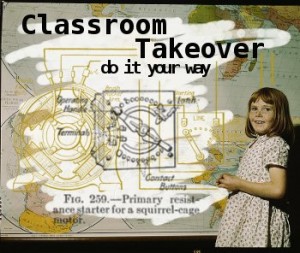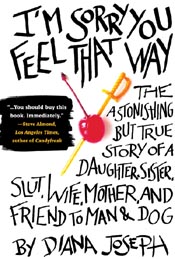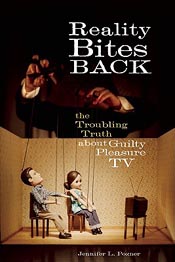
Today I have a guest post over at Birdbrain(ed) Book Blog for Anastasia’s monthly “Classroom Takeover” feature:
Every month, a new blogger creates an ideal college class featuring a subject, author, or genre that they think doesn’t get enough attention in mainstream college classes.
I wrote my post for a class called Journalists Who Say “I” — a class that would focus on discussing a particular kind of narrative nonfiction in an English department. My favorite part about writing the post — other than imagining what a spectacular teacher I’d be (ha!) — is that I got to form my class entirely around books I’ve already read and reviewed over on the blog, so long-time readers might be familiar with the titles.
I hope you’ll stop by Anastasia’s place and check it out! I’d also love more ideas for books that could possibly fit into this new curriculum.
{ }

Last week I asked for some suggestions for foodie fiction that could be options for the next edition of BookClubSandwich, the online foodie book club I co-host with Andi (Estella’s Revenge). We got a lot of great suggestions — both fiction and nonfiction — that I trimmed down to five choices. Below is the list, plus some info about each book, and a poll at the bottom to vote.
We don’t have a specific discussion date yet, but it’ll be sometime at the end of July. Anyone is welcome to vote, but we’d love for people to picks books they’d like to read and participate in the book club. And now, the books! (All descriptions are from Indiebound).
[continue reading…]
{ }
 I’m back in Minnesota this weekend, so I’m probably not going to get any reading done today. And since it’s the beginning of May, it seemed like a good day to take a look at my reading from the past month and what I want to try and read in May. Plus, the first third of the year is over which makes it an apt time for a few bookish stats from the year so far.
I’m back in Minnesota this weekend, so I’m probably not going to get any reading done today. And since it’s the beginning of May, it seemed like a good day to take a look at my reading from the past month and what I want to try and read in May. Plus, the first third of the year is over which makes it an apt time for a few bookish stats from the year so far.
Book Lists
At the beginning of April I put together a list of books to try and read during the month. I read more books in April than in March (yay, Read-a-Thon!), but I didn’t quite get to all the books on my list for the month. That was mostly my fault for over-committing to review books I requested for the month. I need to be better about that.
Here’s what I got to in April, with books from my original list in bold and links to my reviews:
- Beautiful & Pointless by David Orr
- I’m Sorry You Feel That Way by Diana Joseph (Read-a-Thon)
- Summer at Tiffany by Marjorie Hart (Read-a-Thon)
- Nothing Left to Burn by Jay Varner (Read-a-Thon)
- Fables: Sons of Empire, Fables: The Good Prince, and Fables: War and Pieces by Bill Willingham and others.
- Pox: An American History by Michael Willrich
- The Girl Who Was on Fire, edited by Leah Wilson
- This Life is in Your Hands by Melissa Coleman
- The Heroine’s Bookshelf by Erin Blakemore
- The Wilder Life by Wendy McClure
- Priceless by Nicole Richie
- The Imperfectionists by Tom Rachman
I just finished The Imperfectionists last night, but didn’t get around to Lost in Shangri-La by Mitchell Zuckoff. It’s on the top of the pile when I get a chance. I also didn’t read any of War and Peace — I need an intervention on that book, stat!
[continue reading…]
{ }

Title: I’m Sorry You Feel That Way: The Astonishing but True Story of a Daughter, Sister, Slut, Wife, Mother, and Friend to Man and Dog
Author: Diana Joseph
Genre: Memoir
Year: 2009/2010
Acquired: Purchased
Rating: 




Review: I’m Sorry You Feel That Way is a memoir — series of essays, really — about a woman told through the relationships with the men in her life. Through essays about her son, father, first husband, second husband, friend, and the Satanist that lives downstairs (among others), Diana Joseph explores what its like to be a women based on the different relationships she has with men.
I was a little skeptical of that concept — it seemed somehow problematic for a woman to write a book defining herself against the men in her life, you know? However, the book was much more about relationships than it was about Joseph or the different ment, and in that way I liked the concept and the book very much.
Consequently, I thought the book was most successful when Joseph keeps the essay focused on the relationship rather than shifting too far to just herself. I loved the first essay, “Tongue Twister, Tongue Tied,” about growing up with her father and how he formed her ideas about other men. A later essay, about the aforementioned Satanist, works less because Joseph spends too much time talking about her relationship to religion rather than the man. It feels forced and unfaithful to the premise of the book, which doesn’t work for me.
[continue reading…]
{ }

Based on page views, the most popular post on this blog is one from back in February 2009 where I commented on a literary analysis of Stephanie Meyer’s Twilight books. That always makes me laugh, since Twilight is almost the exact opposite of what you can normally expect to read about here, but I think the post comes up high on Google.
The post still occasionally gets comments, mostly often along the lines of, “Yeah, maybe this is right, but the books are just fluff so why bother criticizing them this way?” I find this sentiment frustrating — just because a book or television show or movie isn’t “Great Literature” doesn’t mean it is somehow protected from a critical reading. Pop culture is full of books and movies and television that deserve critical attention and a look at the messages they explicitly or implicitly share.
When I read Jennifer Pozner’s Reality Bites Back, a feminist critique of reality television, I finally felt like I was reading a book that got what I’ve been trying to say. And although the book is focused specifically on reality television, I think Posner’s methods of analysis and conclusions can apply equally well to other forms of popular entertainment.
Pozner begins the book with a long discussion of what makes people watch reality television in the first place, eventually concluding:
But while the schadenfreud and escapism factors may get us to tune in, that’s not what hooks us. On a more subconscious level, we continue to watch because these shows frame their narratives in ways that both play to and reinforce deeply ingrained societal biases about women and men, love and beauty, race and class, consumption and happiness in America.
The book then goes on to explore different facets of reality television — drawing source material from an amazing number of shows — to look at the underlying messages the shows present and what might be a problem with those assumptions.
[continue reading…]
{ }








